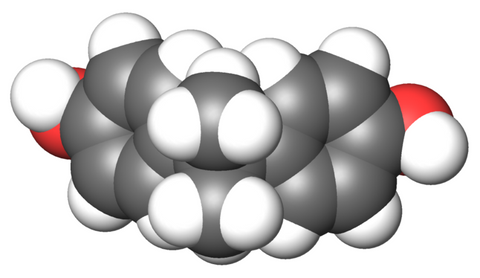 What is BPA?
What is BPA?
You may have heard about BPA (Bisphenol A) in the news recently. BPA is a synthetic chemical compound used in a wide range of consumer products. It is primarily used to make plastic food and beverage containers, plastic food wrap, and epoxy resins that line the aluminum used in canned foods, like soup.
Polycarbonate plastic food and beverage containers that contain BPA are generally a hard, clear plastic and can be identified by the #7 recycling symbol. However, not all #7 containers are made with BPA. Symbol #7 is used as a "catch-all" category and is also used to designate biodegradable containers made from corn or other safe materials. BPA may also be found in PVC plastics which are designated by recycling symbol #3.
Why is BPA receiving so much attention?
The problem with BPA arises over time, as the chemical bonds in plastics weaken and the BPA begins to leech out. Exposure to heat accelerates this process. Unfortunately, much of the BPA leakage makes its way into humans. The US Centers for Disease Control (CDC) found BPA in 93% of the people tested (for more info on this study, click here). In mammals, BPA (at levels as low as 2-5 parts per billion) mimics estrogen. Many scientists believe that exposure to BPA can lead to numerous health problems, including cancer, premature puberty, hyperactivity, and, in men, low sperm counts or infertile sperm. Recent studies also indicate links to obesity and schizophrenia. The National Toxicology Program, part of the U.S. Department of Health and Human Services, found "some concern" that low levels of BPA cause changes in behavior and the brain, prostate gland, mammary gland and the age at which girls enter puberty.
Perhaps the greatest concern is BPA’s effect on infants, whose developing brains are more susceptible to toxins. Dr. Maida Galvez, a pediatrician studying BPA, recommends parents stay away from bottles containing the chemical and says, "We know the animal studies raise concerns, but there aren't human studies showing effects yet ... so, when we don't have the evidence, what we recommend is that parents try to err on the side of caution." The U.S. Food and Drug Administration (FDA) maintains its decades-old approval of polycarbonate bottles as safe, based on two studies which were both funded by the plastics industry. However, in light of recent studies, Health Canada (the Canadian regulatory body equivalent to the FDA) has declared Bisphenol-A "hazardous", banned the use of BPA in baby bottles, and is taking further steps to limit the release of BPA into the environment. And ten states in the US currently have legislation pending that would affect the use of BPA.
What can we do about BPA?
To safeguard your family from BPA, consider taking the following steps:
-
choose powdered rather than liquid infant formula (BPA has been detected in every brand of liquid formula)
-
don’t give plastic toys to children who are teething
-
choose BPA-free lunch boxes
-
avoid canned sodas and canned food items with acidic contents (e.g., tomatoes or citrus) – especially if you are pregnant or breastfeeding
-
use water bottles made from glass, stainless steel, or BPA-free plastic
-
avoid heat exposure for plastics used for storing food or beverages; wash plastic containers in cold or warm water and do not dry them in the dishwasher; avoid microwaving plastic containers
For more info on BPA, see Wikipedia.
